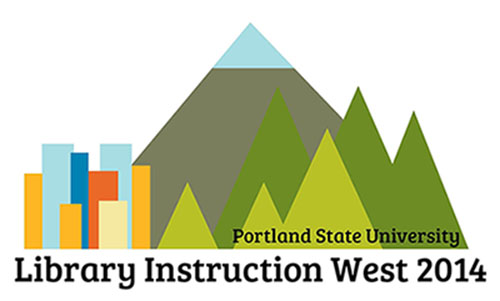Location
Portland State University, Portland, Oregon
Start Date
7-25-2014 1:15 PM
End Date
7-25-2014 2:15 PM
Subjects
Information literacy -- Study and teaching -- Congresses
Description
Instructional librarians are challenged to address issues of scalability and sustainability in ways that foster instructional creativity. As a result of a South Dakota Board of Regents mandate, IL instruction is required in four general- education courses at the University of South Dakota (USD). The resulting heavy volume of instruction poses problems of scalability and quality for the library faculty. This presentation by the University Libraries' instructional design team (IDT) demonstrates how inverted or flipped instruction can be used to provide scalable sustainable and effective information literacy (IL) instruction. We include a discussion of the affordances and constraints of inverted instruction identified through this project. As a result of this presentation, participants will understand the applicability of inverted instruction to IL programs, appreciate the benefits of inverted instruction for both students and librarians, and identify ways to apply inverted or flipped pedagogy to their own IL instruction.
Persistent Identifier
http://archives.pdx.edu/ds/psu/14463
Included in
Give a Flip: Making Library Instruction Scalable and Sustainable Through Inversion
Portland State University, Portland, Oregon
Instructional librarians are challenged to address issues of scalability and sustainability in ways that foster instructional creativity. As a result of a South Dakota Board of Regents mandate, IL instruction is required in four general- education courses at the University of South Dakota (USD). The resulting heavy volume of instruction poses problems of scalability and quality for the library faculty. This presentation by the University Libraries' instructional design team (IDT) demonstrates how inverted or flipped instruction can be used to provide scalable sustainable and effective information literacy (IL) instruction. We include a discussion of the affordances and constraints of inverted instruction identified through this project. As a result of this presentation, participants will understand the applicability of inverted instruction to IL programs, appreciate the benefits of inverted instruction for both students and librarians, and identify ways to apply inverted or flipped pedagogy to their own IL instruction.


